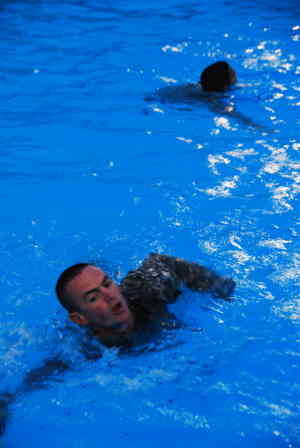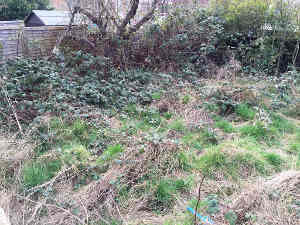I DON'T see couples for relationship counselling, marriage counselling, or civil partnership therapy.
Please note, for relationship counselling, I ONLY see individuals privately (independently of their partner),
who want to work through their OWN, SPECIFIC concerns, issues in their relationship.
Stuckness, Staleness, Neglect & Apathy In The Relationship Counselling London
Our issues only get triggered within our relationship - not when we're alone. Intimate relationships are the fertile ground for teaching us who we are, building a healthy relationship with ourself, healing ourself, exploring what we may need to learn through the dynamics of our relationship system. The closer the relationship, the deeper the wounds become activated, providing us with opportunities to heal what we need to heal, learn, love.
Stuckness, Staleness In The Relationship, Marriage

Our Relationship, Marriage May Have Become Stuck In A Stale Familiarity There may be a communication impasse as if we are going through the motions, ticking along, treading water, not fully engaged. (Now that we felt content, comfortable, some of us may have started to slack, because we feel safe, but this may not help the relationship to flourish, especially if we are unwilling to have awkward, difficult conversations or don't address our repetition compulsions. We may be waiting around for things, life, our relationship to change, for us to change. We may be concerned that the relationship, marriage is slowly drifting apart. We may only be going along with things, fitting in, yet not fully involved, as if in some sort of relationship bubble. We may have begun to take each other for granted, complacency may have set in, as if we have lost our sense of curiosity about each other. We may be lost, stuck in the relationship, which may point to a lostness, stuckness inside us. Inside we may be very alone, lonely (see also Our Painbody). We may feel unmet by our partner. A gap between each other may have opened up and we may want to find a way to make it bridgeable. It may be difficult to reach each other. Somehow giving our power away, we may have a lost sense of who we are in the relationship, or where the relationship is going. Reinvigorating this, nourishing it so it flourishes, may now be our priority. The spark may have gone and the dark side of each of us may also have been ignored. We may have lost or forgotten what binds us as a couple, and as the romance, desire disappears, we may struggle to rekindle, revitalise what was once. Differing libidos can be a challenge, or both of us may hardly ever be sexual together as couple. We may have become more like friends, siblings. Desire, passionate love, may have dwindled. We, or our partner, may become distant or have problems opening up or responding to our fears of closeness, intimacy. One of us may find it hard to give or receive love, or one of us may pull, the other resist. We may have fallen out of love with our partner, which may be connected to our own expressions of loving or indeed our self love, less to do with our partner, which may also be explored in the relationship counselling and psychotherapy.
Lonely in The Relationship, Marriage
Feeling Lonely In The relationship Some of us may isolated ourselves so as not to feel the pain that sometimes happens in the relationship, yet this may bring up a different kind of pain. We may be able to handle being different, disagreements, yet struggle because we feel so lonely in the inertia of our relationship or marriage that we can never find our partner when we need them - that we want them to be there for us. However, it may be that we have different relating states or that we fear abandonment, feel empty inside, struggle to manage our own aloneness, stay engaged. Making connections with our partner includes making connection (emotionally with ourself) (see also Connecting, Disconnecting, Reconnecting, Interconnectedness).We may be losing ourself in the relationship. Counselling and psychotherapy can explore what it's like to feel alone and the options we have in our relationship, marriage.
Sidelined
Being Sidelined In our relationship, marriage one of us may tend to make more of an effort and the other can feel sidelined, left out, lonely. One of us may have more energy for life (and in order to get our needs met we may strike up limerent relationships with others, as if we are having an emotional affair). The other partner may feel sidelined, be resistant, neglect themselves, their relationship or be at a different stage in life. This can be explored in the relationship counselling.
Inaction - When Our Partner Doesn't Initiate
We may want our partner to initiate and take the lead more often - this may include starting conversations, physical intimacy, etc., and we may end up feeling resentful. We don't have control over getting our partner to initiate things, yet we may control our own behaviour, by taking personal responsibility in positive ways for ourself, facilitating space and freedom for our partner to make their own choices, so they play more proactive role in the relationship. Having compassion for our feelings of heartbreak, helplessness over lack of team work and action from our partner, loneliness. Instead of taking our partner's behaviour so personally we may want to have an intention to learn from them why they aren't initiating. And when we speak with them to use "I" statements (e.g. "I feel overwhelmed when I'm organising X, Y and Z). We may want to help and encourage our partner, when they do initiate and bring skills into our relationship. Identifying activities we both can do, dividing up our tasks, so we are mutually involved, can assist, as can accepting our partner's decision not to initiate certain activities, yet identifying with them ways they do contribute, so our relationship feels more balanced.
Living Parallel Lives In A Transactional Relationship


Drifting Apart Many couples successfully have lives running in parallel, yet at the same time are able to merge (without being enmeshed), be close to each other in satisfying ways, so the relationship is fostered and nurtured. Yet some of us may be going through the motions in a sort of transactional relationship and struggle with how to communicate well, connect, disconnect and reconnect (for some of us this may be linked to our painbody). Our desire, passionate love, may have dwindled and we may have become like distant friends, siblings, close yet distant in this transactional relationship and withdrawn at certain aspects, avoid sexual passion, conflict or confrontation (see also Relationship Style, Attachment Patterns). Over time, distance between us and our partner may have increased, as if we are like ships passing in the night. We may live together, yet live alone, feel lonely. The space between being autonomous and part of a couple may have opened up a chasm in our relationship or marriage. We may have slipped into separate routines, transactions. Most things may have become separate: separate schedules, interests, goals, maybe friends, even lives. One or both of our careers may have taken on such importance, that we have drifted away from nurturing our relationship. Emotional neglect may have set in. Deciding to prioritise our partner and relationship again may be important. Being together as part of a couple may have become difficult. We may feel trapped, disappointed, lost or lonely in our separate roles, as if each of us are living parallel lives, missing intimate human contact. One or both of us may be "married to our work" and not available to bond as a couple, be intimate. The relationship may have become in limbo, stagnant or draining. Our identities are separate, yet the identity and romance of the relationship may have been lost. Like the polarities of a magnet, what once attracted us, we may now push other away. At times it can seem as if we speak different languages. Investing our time and energy in the relationship, learning, choosing how to be together again - spending quality time and be intimate may be a further challenge. Evaluating our priorities, choosing to prioritise our relationship or marriage and forgoing other activities may also be important. Relationship counselling and marriage psychotherapy can discuss these issues of distance and closeness and how you want to make the relationship flourish, nurturing it, if that is your choice. (See also Neglecting Ourself, Our Relationship Or Marriage)
Procrastination In The Relationship Or Marriage
Putting Things Off When we put things off, store things up (including committing to our relationship), this tends not only to affect us, but also our partner, and the relationship counselling or marriage therapy may look into what may lay behind this. Some of us may procrastinate without knowing why. Others may use procrastination (putting things off or avoiding things - see also Procrastination Counselling, Indecisiveness & Lateness) as a shield or weapon in our relationship in order to control or avoid things by being passive aggressive. We may find it hard to acknowledge to our partner there is a problem (or our partner may struggle to acknowledge there is a problem). We can make it difficult for people to know we are doing it on purpose. We may resent requests or not like being told what to do, how to do it, yet feel uncomfortable saying that. And in our reaction we can refuse to respond and use procrastination to control when we accomplish tasks. We may struggle to have full and frank discussions and decide not to talk about things, so we let them go, yet inside they affect us and our partner. Standing up, asserting ourselves, saying "No" or expressing our anger may be our struggle, as we believe any conflict or confrontation may make things worse, so will do anything to avoid an argument. Our relationship, marriage may have been conflict avoidant (see also Avoiding Conflict, Fear of Confrontation, Fear Of Conflict and Assertiveness). We can also avoid contact so as not to be asked something we would rather not do. We may believe our partner hasn't the right to make demands of us. And even if they do, the tone and manner they are using puts us off. Inside we may be full of fear, dread or rage. Holding our anger in, we may also use silence as a controlling technique.
Apathy, Indifference In The Relationship Or Marriage
Being Apathetic The ordinariness of living or sense of boredom may arise, which may point to our own feelings, needs, beliefs and nothing to do with our partner. We may find that over time we may have become apathetic, indifferent not only about life in general but also about our relationship or marriage. One or both of us may have taken each other, or the relationship, marriage, for granted, lost our curiosity, dynamism, vitality, light-heartedness, playfulness, carefreeness, laughter, fun, pleasure and our sense of humour. Romance, spontaneity and surprises, mystery, risk may also be absent. Our grievances may have long since been aired or gone unheard. Our self-respect or respect for our partner may have dwindled. Bored or mired in inaction we may be unhappy, unfulfilled or developed unhealthy habits or addictions. Our relationship or marriage may simply be convenient for us, and we either go along with it, or wait for someone else to come along. We may have stopped trying, given up attempting to rekindle the flame of our relationship or marriage. Never disagreeing, avoiding all conflict, may not help us. The relationship counselling and marriage counselling can help uncover what else may lay behind any apathy, indifference and what happened to passion, desire, love, sexual energy.
Abandoning Our Partner & Us In The Relationship

Abandoning Things We may have decided we have certain "abandonment issues" or have a fear of loss, abandonment, rejection. We may have played a role in abandoning certain things in our relationship or marriage, and relationship counselling or marriage therapy can consider this (see also In A High Maintenance Relationship), uncover what may lay behind this and any future responses. We may be cruising along in the relationship and in cruise-mode we may struggle to connect, make it flourish. We may have become stuck in some ways, closed off, shut down or struggle to engage, have withdrawn or become withholding. This can be frustrating for us and our partner. Feeling lonely around our partner, in order to avoid and protect against our core pain (e.g. loneliness or heartbreak or even bonding issues in our early life, e.g. how we were/weren't touched, held) we can abandon ourselves, keep our heart closed, go into our heads, disconnect, become harsh or judgemental. When we abandon a part of us in specific ways, we may not only ignore, disrespect ourself, but also ignore the effect on others, who may also feel disrespected. We may avoid upsetting our partner for fear they might leave, yet in doing so we may at some level have abandoned us by not speaking our own truth. Others may end up behaving unlovingly towards their partner (e.g. our withdrawal, judgements or attacks, crushing behaviour). Any unwanted feelings, boredom in us, aspects of us we don't like can get passed over to our partner. We may continue to believe that we are unable to handle the core pain in us now, trying to avoid this, mirroring how we were unable to handle pain as a child. (See Influence Of Our Past On Our Relationship Or Marriage)
Emotional Neglect & Letting Ourself Go
Only One Of Us Making The Effort If it tends to be one person making an effort or the relationship becomes high maintenance, the relationship or marriage becomes compromised and love can easily be replaced by resentment, neglect. We may want our partner to change. The relationship may be in jeopardy. (see also Continuing Or Ending The Relationship Or Marriage Counselling).

Neglecting Ourself, Our Relationship Or Marriage Each of us can feel abandoned by the other. When we neglect our self (which may date back to childhood wounds, our own experience of neglect) we may also have neglected the relationship or marriage, and this can be looked into in the marriage counselling or relationship therapy. Over time, we may have unintentionally neglected both us (we may have abandoned ourself physically, emotionally neglect ourself) and our relationship and it may be important for us to be willing to invest the time and energy in our relationship with our heart and soul. We may have forgotten to respect, care for us (see also Neglect Or Nurture), our partner and the relationship in the way we used to, not make much effort. We may neglect our partner (not taking any responsibilities, obligations, etc.), taking the mystery of all of who they are for granted, losing our sense of curiosity. Any efforts we made in those early days have become distant memories. We may have neglected nurturing the affectionate sexual and spiritually uplifting sides of our relationship or marriage. Being involved, fully engaging in conversation, planning outings, doing things together, developing mutual interests may have become a thing of the past. We may have put up walls in the relationship or marriage. Rekindling the relationship or marriage may be a concern. We may believe that romance is something we only do in our dating phase. After those early romantic encounters, the chase well and truly over, one or both of us may have begun to neglect either us, our partner, or the relationship (see also Emotional Engagement, Emotional Connection, Emotional Intimacy). Neglecting ourself may manifest through unhelpful habits, addictions. How emotional connection erodes or neglect in a relationship occurs can also be included in relationship therapy. Like a neglected garden we may have grown apart, as if the relationship or marriage hasn't been attended to or appreciated. We may have slowly become disinterested, allowing outside influences taking precedence over our relationship or marriage. Uninterested and neglectful, we may have become sloppy, stopped caring for ourselves. This may affect our personal care, how we look after our self, our health, body, diet, exercise, sexual energy and surroundings at home. It can be as if we are simply settled, having become comfortable with our lot, not bothering much any more (e.g. not taking care of our weight, condition, appearance, personal cleanliness and grooming, sliding into bad habits) and have not become an attractive prospect. Some of us may have lost, be out of touch with, given up on our own needs, and dependency needs of the relationship. (See also Living Parallel Lives In A Transactional Relationship)
I'm not OK, you're not OK, and that's OKElisabeth Kubler-Ross
Disinterest
Disinterest may have seeped in to our relationship, marriage and this isn't compatible with intimacy, passion, desire. (Sex, if still possible, may have become routine.) When we are disinterested we may have stopped listening, lose our sense of fun, laughter, light-heartedness, no longer flirt, be romantic or tactile with engagement. Some of this may relate to fear of love (or love avoidance, fear opening up emotionally being vulnerable, surrendering), fear of commitment, being avoidant or dismissive, become preoccupied elsewhere in their relationship, feel resistant, ambivalent, wanting intimacy, yet fearing it, experience procrastination, loss of esteem, confidence, disappointment.
Dwindling Passions
Once we are settled in a relationship, marriage we may no longer put the loving work into it, have given up on our own passions, desires, let our health and fitness, physical attraction, body deteriorate, get complacent, comfortable and this affects our relationship (see also In A High Maintenance Relationship). Unhelpful couple dynamics of pushing and pulling may be impacting upon our passions as a couple. Being emotionally connected, looking after ourselves, chasing our dreams may be important
Not Taking Responsibility In The Relationship, Marriage
Resistance & Not Taking Responsibility In Our Relationship Or Marriage Some of us may play a role in the relationship, instead of being in it - a controlling one, who neither commits nor lets go. Others may be living as if on borrowed time - that it doesn't belong to us, that we have someone else's time, as if we are irrelevant, giving ourself away, believing that we only exist through other people (see also Self-Esteem, Confidence, Criticism, Insecurity & Assertiveness). We may relieve ourself of any responsibility - handing this over to our partner, as if they can make us happy, save us. This may manifest by being in a high maintenance relationship organisationally, emotionally, sexually, financially. We may have ignored what we need, want, becoming almost selfless (see also Healthy Side Of Being Self(ish)) or struggle to speak, share our truth, be the best version of ourself. One of us may feel helpless over our partner lack of caring because they have gone into resistance. And this can be in response to our attempts to control (e.g. we may need to check out we are requesting and not making demands), or actually have nothing to do with us, but entirely to do with them (see also Insecure Attachment - Our Ambivalent Or Resistant Style Of Attachment/Relating (Becomes Preoccupied Style Of Relating Or Anxious Attachment Style As An Adult)). If that is the case we may need to find alternative means to do things our partner refuses to do, or doing things ourself without resentment can be options. Encouraging our partner to go into therapy with us can be another option. Yet if our partner is so entrenched and refuses to acknowledge and respond to issues, and the caring is so lacking that it is unacceptable to us we may need to end the relationship. Having regular couple check-ins can be very helpful. The relationship therapy and marriage counselling can be a space to talk about this more. (See also Responsibility In Our Relationship)
Depression In The Relationship Or Marriage
If we or our partner feel depressed, this also affects our relationship, marriage. One or both of us may be depressed, yet not know this and therefore struggle to take responsibility for ourself and the relationship. If our partner is depressed, we may not know how to respond.
Our Responses
We can carry on the way things are or respond differently transforming our relationship, marriage. There may be other relationship problems which need to be overcome, alongside:
- Controlling behaviour
- Relationship expectations
- Love needs
- Fear of dependency
- Trust, intimacy, love, touch & sex
- Relationship communication
- Other relationship challenges
- Continuing or ending the relationship or marriage
FAQs about the relationship Counselling London practice based in Kings Cross, Camden:
- What is the frequency of relationship counselling in London, Kings Cross?
- How many relationship counselling in London sessions do I need?
- How much does relationship counselling London cost?
- Must I visit your London counselling practice in Camden or do you offer Zoom or Teams counselling, online counselling?
- What are the advantages and disadvantages of offering online counselling, Zoom or Teams counselling or in-person counselling in London, Camden, Kings Cross
- Do you only offer relationship counselling in London, Camden or Kings Cross?
- What times do you offer relationship counselling in London, Kings Cross or Camden?
- How do I contact a relationship counsellor in London, Camden, or near Kings Cross?
- How effective is relationship counselling in London, Kings Cross, Camden?
- What can I expect from the initial session of relationship counselling London?
- What to expect from the other relationship counselling London sessions?
- What is the typical duration of the London counselling services in Camden, Kings Cross
... back to Relationship Counselling, Marriage Counselling & Relationship Problems - Index
